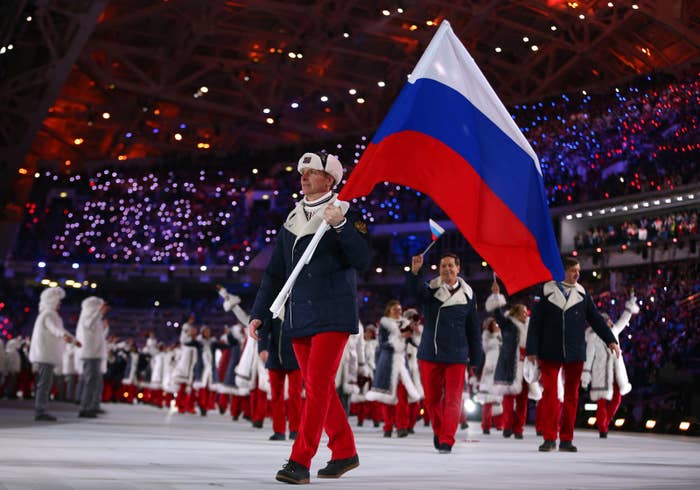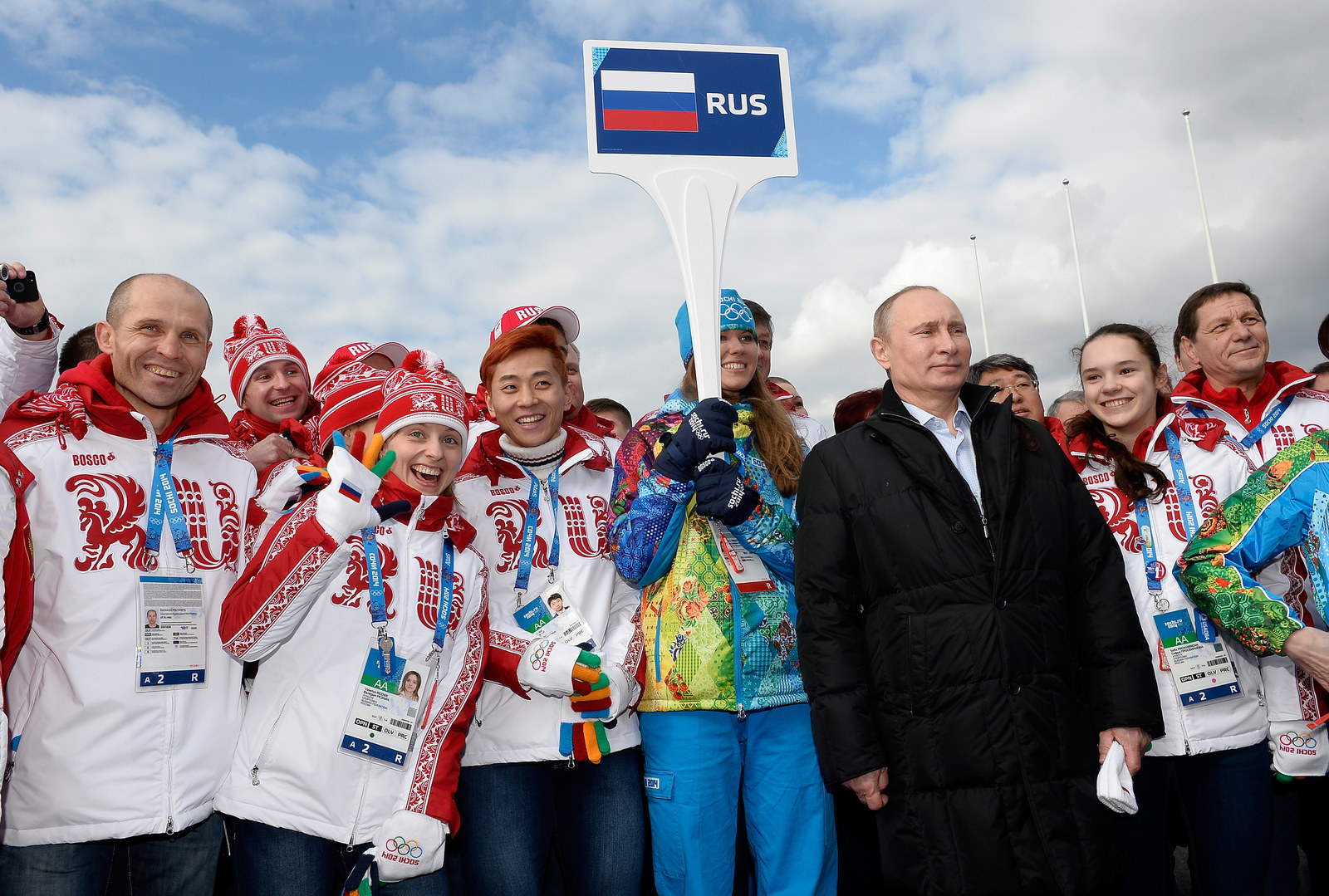
The International Olympic Committee on Tuesday announced it was barring the Russian Olympic team from participating in the February 2018 Winter Games in Pyeongchang, South Korea, as punishment for a state-sponsored doping scheme at the last Winter Games in Sochi.
"We have never seen such manipulation and cheating," IOC disciplinary commission chairman Samuel Schmid told reporters, "and this has caused unprecedented damage to the Olympics and to sports."
Russian Foreign Ministry spokesperson Maria Zakharova addressed the ban in a statement on Facebook: "They can’t bring us down in any way. Not by world war, not by the fall of the Soviet Union, not by sanctions...Is it painful? Very. We’re with our athletes heart and soul right now. Will we survive? Yes."
The IOC has been investigating doping by Russian athletes and manipulation of doping tests for more than a year, and as a result of its findings issued its most severe penalty ever.
"This should draw a line under this damaging episode and serve as a catalyst for a more effective anti-doping system," said IOC President Thomas Bach.
But some Russian athletes who clear a strict test for performance-enhancing drugs will be allowed to compete as individuals under the Olympic flag.
Neither the Russian flag nor the country's national anthem will appear at any events, and Russian dignitaries who were previously involved in Olympic planning have been banned, according to a statement by the IOC.
Alexander Zhukov, president of the Russian Olympic Committee, apologized in a speech for "breaches of anti-doping rules which were committed in our country" but rejected the claim that the Russian government had run an official doping program during the Sochi games. According to the AP, he praised the IOC for allowing athletes to compete as "Olympic Athletes from Russia" rather than simply "Olympic Athletes."
One banned official, Russian deputy Prime Minister and former Sports Minister Vitaly Mutko, is also involved in planning the FIFA World Cup. Schmid said Mutko "had the ultimate administrative responsibility for the acts perpetrated at the time." A FIFA spokesperson said in a statement that the IOC's penalty would have "no impact" on the preparations for the 2018 World Cup.
"Should there be enough evidence to demonstrate the violation of any anti-doping rules by any athlete, FIFA would impose the appropriate sanction," the spokesperson wrote. "On the other hand, it should be stressed that sanctions cannot be imposed based on mere suspicion or limited facts."
IOC commissioner on Russia Olympic ban: "We have never seen such manipulation and cheating" before. It caused "unpr… https://t.co/xEpsKiKXVW
On its website, the IOC wrote that its investigation "confirmed 'the systemic manipulation of the anti-doping rules and system in Russia...as well as the various levels of administrative, legal and contractual responsibility, resulting from the failure to respect the respective obligations of the various entities involved.'"
The Russian Olympic Committee has been ordered to reimburse the IOC for the costs of the investigation and been fined $15 million USD "to build the capacity and integrity of the global anti-doping system."
Bach said he felt "very sorry for all the clean athletes" who suffered as a result of Russia's cheating and vowed to "look for opportunities to make up for the moments they have missed on the finish line or on the podium."
The IOC will hold a special ceremony in Pyeongchang to reassign medals based on results of the Sochi games changed by the investigation's findings, according to the New York Times.

Russian state-run media reported that, prior to the announcement, Dmitry Peskov, a Kremlin spokesperson, said that Russia had made no plans to boycott the Pyeongchang games and that the Sports Minister Pavel Kolobkov had promised to explore legal recourse to deal with a ban should the IOC issue one, indicating a possible appeal.
The BBC reported that Russian state TV station VGTRK will not broadcast the Winter Games if the Russian team is not participating.
Irina Rodnina, a Russian politician and three-time gold medalist figure skater, tweeted, "How they fear us. Guys, sorry we couldn't protect you."
Russia was banned from the 2016 Paralympics in Brazil over doping concerns after a landmark report by the World Anti-Doping Agency. The IOC was criticized for not instituting a blanket ban on Russia for the 2016 Olympics, instead screening athletes on a case-by-case basis and allowing 271 athletes to compete under the Russian flag.
Grigory Rodchenkov, the former director of Moscow's Antidoping Center who blew the whistle on the country's doping scheme, said in a statement from his lawyer, "Today's decision by the International Olympic Committee sends a powerful message that it will not tolerate state-sponsored cheating by any nation."
